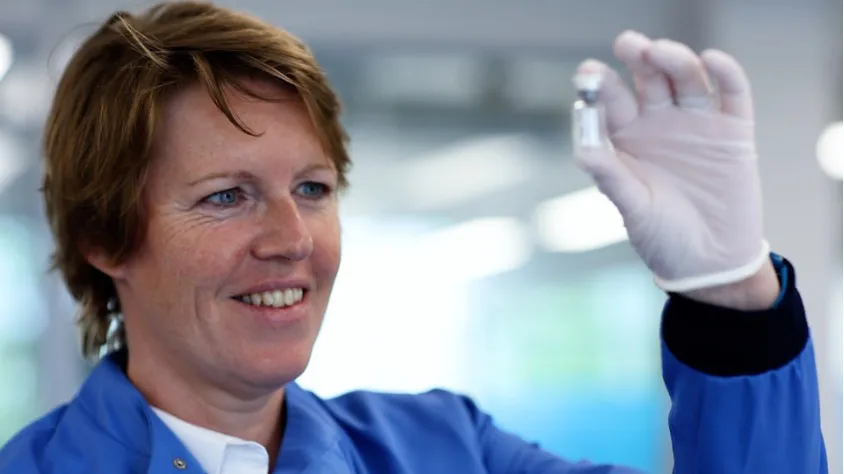HIRANI shines a spotlight on one of the first therapeutic bio-techs to spin out of Queen’s University Belfast.
Founder and CEO, Professor Helen McCarthy is Chair of Nanomedicine in the School of Pharmacy, a global top 40 School in the QS rankings. Professor McCarthy spun out the company in 2017 because she could see that gene therapy would never fulfil its potential until a range of delivery systems were developed.
“I was particularly interested in using peptides to carry DNA and RNA into cells without them being recognised as foreign.”
So, over a period of 11 years, she and her research group had created a body of evidence for the use of these peptides in applications ranging from oncology therapeutics, to wound healing and bone repair. As Professor McCarthy describes the peptide acts as a ‘trojan horse’: because it is comprised of natural amino acids, the cell does not activate its ‘alert’ signals, so the cargo seamlessly reaches its destination site, either the cytoplasm or nucleus of the cell.
As one of the first therapeutic bio-techs to spin out of Queen’s, pHion had to develop its own roadmap. The company has had many offers to relocate to well-known bio-tech hubs in GB and the US. However, they have resisted, choosing instead to garner knowledge from experts externally and bring it back to Belfast. The goal is to create a new industry for many of the talented graduates from both local universities, and for those who have left NI and wish to return.
Winning both Invent and the All-Ireland Seedcorn Competition in 2017 paved the way for the company’s early development of the use of this peptide technology to deliver mRNA vaccines. Since 2019, it has secured ten awards from Innovate UK and benefited from additional support from Invest NI, Medicines Discovery Catapult, and the Centre for Process Innovation.
pHion currently has a pipeline of five mRNA vaccines that are either prophylactic to prevent disease, or therapeutic to treat disease. The prophylactic vaccines are delivered intradermally or intramuscularly and include a triple antigen COVID-19 vaccine, and a dual antigen vaccine for Crimean Congo Haemorrhagic Fever. The therapeutic vaccines are delivered intravenously and include a vaccine for high-grade ovarian cancer and another for prostate cancer. pHion’s lead vaccine candidate is for the treatment of HPV-16-driven cancers; with pre-clinical toxicology just completed, an innovative modular clinical trial is due to start in Q1 2024.
Having spent five years in the basement of the Medical Biology Centre at Queen’s with no windows, there is now light flooding through pHion’s glass-walled premises in Concourse 2 of the Catalyst Science Park in the Titanic Quarter where the company relocated in 2022.
As if to reflect this, Prof McCarthy has always had a clear vision about the underlying values of the company where integrity, transparency, and an openness to learn are at its core. For her, it is not the company that is innovative, but the mindset of the people within it.
“pHion sets high standards to encourage each individual to exceed their potential. This is necessary because everything pHion does is a first; there are no peptide-mRNA vaccine roadmaps to follow when it comes to the tests and quality checks for each product. pHion has to use solutions-based thinking in consultation with pharma experts so that together the team can educate others in this region on the optimal path to the clinic.”
Above all, though, Prof McCarthy is committed to translating her delivery technology to the clinic for patient benefit; that is the goal.
